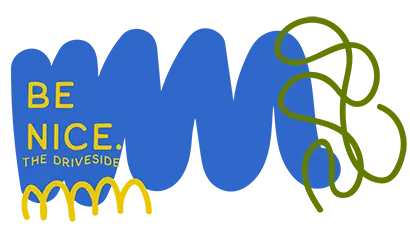What is your story with cycling?
Cycling has always meant change for me. When I got my first big kid bike for my twelfth birthday that was freedom. When I purchased my first bike as an adult it was a way to free myself from debt. When I started riding longer distances it was about experiencing the joy of exercise in a way that had been taken from when I broke my ankle. However, all of these experiences are intertwined with trauma.
As a child when I went on that first ride by myself a car full of teenagers rolled up beside me. One of them shouted “Nice helmet!” And you better believe it was — shiny blue and brand new. I replied in my pubescent voice “Thank you!” Then they finished their sentence before speeding off in baleful laughter, “Faggot!” I was left feeling exactly the way they wanted me to. I was ashamed of expressing myself. I never wore that helmet again.
When I headed down to Bike Pirates with the last few dollars in my account and asked for a bike it was an act of desperation. I had three jobs and still couldn’t make ends meet. My degree, the cost of entry to Canada, had cost me $100,000 of debt. Having that number and your parents’ homes attached to it gouges your mind with every moment. That while having employers look you deadass in the eye and tell you they won’t hire you or can fire you because of your immigration status.
When I broke my ankle I was training for the world championship of Tough Mudder. I loved running. It’s something I’d picked up in high school to get out of gym class and I was good at it. Well, I was good at really, really long distances. The pain at 5k and 15k and 50k is all the same and I believe that my trans-ness is part of what makes me good at enduring that. Every day I ride out life inside a body that causes me pain. I have to learn to endure to survive, but it’s not a good pain I’m enduring. So, when I use that skill on a run or a bike ride I’m using my skill to endure good pain. Pain that I choose. Something that’s useful. That I can benefit from. Well, my ankle healed, it just wasn’t the same. Where there once was good pain, now my joints and muscles screamed out at me with every step. It was like they were shouting f slurs at me from inside, but they didn’t even have the decency to give me a sarcastic compliment first. So, I retreated and mourned the loss of that part of my life for a long time. That is until I found cycling.



